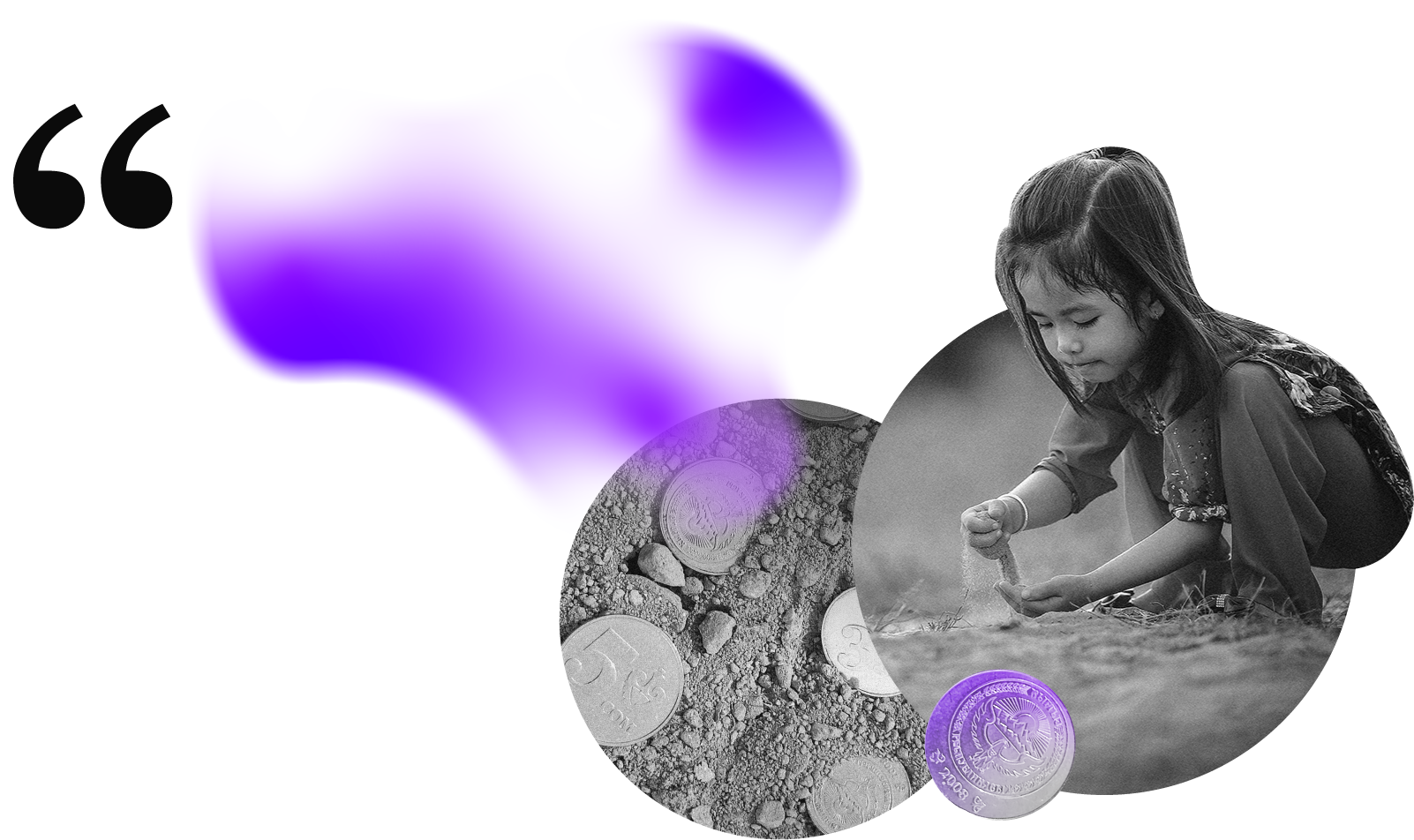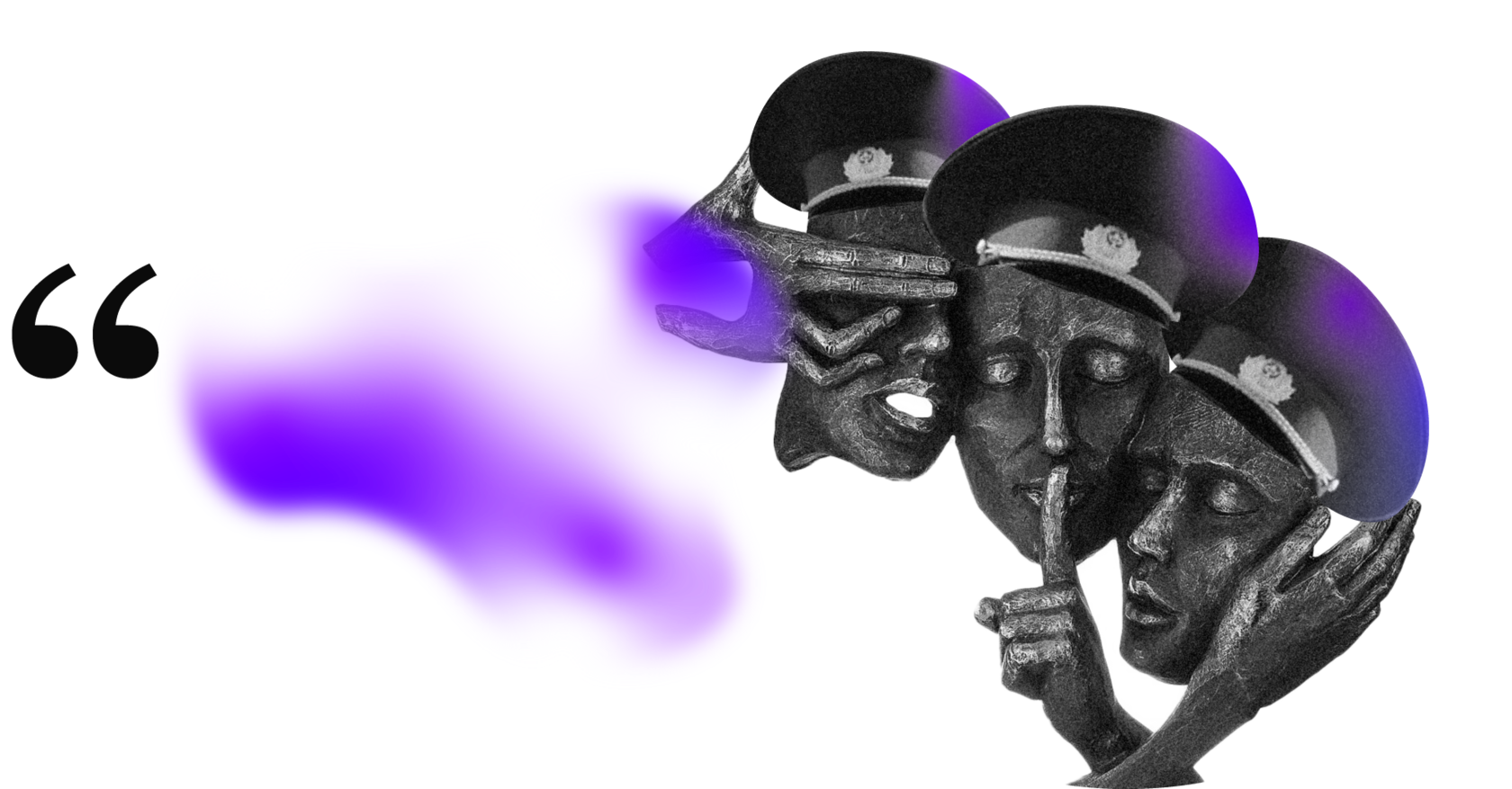Toxic seeds of gender bias

How gender attitudes worsen the situation of women in Kyrgyzstan








According to World Bank's annual studies (WBL Indicator), that evaluate laws affecting women, Kyrgyzstan has one of the highest indicators in the region. The Constitution guarantees equal rights to Kyrgyz women, the state implements National Strategies and determines priority areas of gender policy.
Meanwhile, for 3 years in a row, Kyrgyzstan is the least safe country for women in Central Asia according to the global Women Peace and Security Index.
Meanwhile, for 3 years in a row, Kyrgyzstan is the least safe country for women in Central Asia according to the global Women Peace and Security Index.
Despite equality and protection at the legislative level, violence against women is increasing, and for half of the country's population there is still no security, justice or equal conditions in politics and economics. Why?
The answer to this question can be found in the public consciousness. Based on the World Values Survey data, we propose to explore how people's thinking influences the reality for women of Kyrgyzstan.
The answer to this question can be found in the public consciousness. Based on the World Values Survey data, we propose to explore how people's thinking influences the reality for women of Kyrgyzstan.
Personal beliefs of people in Kyrgyzstan create a favorable ground for systemic gender inequality in the spheres of economics, politics and security.

Source: WBL Index among 160 countries
wbl.worldbank.org
wbl.worldbank.org
Source: WPS Index among 177 countries
giwps.georgetown.edu
giwps.georgetown.edu


Economic
inequality
inequality
The beliefs of people in Kyrgyzstan support financial dependence and lack of economic freedom for women
How do these beliefs affect women's economic freedom?


Source: worldvaluessurvey.org



Source: stat.kg


Source: wid.world

Source: stat.kg


Why this matters?
The idea that women have need less economic independence than men is passed on from generation to generation. Parents are more likely to provide education for their son rather than for their daughter. This affects girls opportunities to get education and aspire to high-paying positions because “there’s no place for a woman there.”
Beliefs that women should earn less than men, have less rights to jobs, higher positions and wages directly affect women's economic freedom. When earnings are disproportionally concentrated in the hands of men, they have an instrument of control and pressure in case of conflicts.
In families where one of the spouses is financially dependent on the other, there is a higher risk of economic violence. If women earn significantly less than their husbands or do not work, then it is much harder for them to leave the abuser in case of violence and to start an independent life. Especially when they have children to provide for.
Beliefs that women should earn less than men, have less rights to jobs, higher positions and wages directly affect women's economic freedom. When earnings are disproportionally concentrated in the hands of men, they have an instrument of control and pressure in case of conflicts.
In families where one of the spouses is financially dependent on the other, there is a higher risk of economic violence. If women earn significantly less than their husbands or do not work, then it is much harder for them to leave the abuser in case of violence and to start an independent life. Especially when they have children to provide for.

When women who have faced violence do not have the financial means to make a living for themselves and children, they are trapped to endure beatings and cruelty.
Political
invisibility
invisibility
The opinions of people in Kyrgyzstan confirm that women and men are not on equal terms in the sphere of politics
How does political reality
reflect these beliefs?
reflect these beliefs?





Source: worldvaluessurvey.org
Source: data.ipu.org
Source: gov.kg
Source: gov.kg





Politicians at different levels make decisions affecting people of all genders, and if people responsible for these decisions are predominantly male, women's interests are more likely to remain invisible.
For example, male deputies state that violence against women is "rare", and that “Kyrgyz people respect, love and treat women with care." The problem of gender-based violence does not exist for them. Whereas for every woman who worries about her own safety on the street, at home, at work and in public places every day, this is a relatable threat. Women tend to have more political will to act on gender issues from the woman's perspective.
At the same time women's representation in ministries, parliament and local governments is only part of the solution. We see that even those few female politicians who are responsible for the women's interests in Kyrgyz politics do not always have a say or influence women's rights protection due to the pressure of the majority or personal prejudices. This highlights the particular importance of working with gender sensitivity in both men and women to transform gender biased beliefs.
For example, male deputies state that violence against women is "rare", and that “Kyrgyz people respect, love and treat women with care." The problem of gender-based violence does not exist for them. Whereas for every woman who worries about her own safety on the street, at home, at work and in public places every day, this is a relatable threat. Women tend to have more political will to act on gender issues from the woman's perspective.
At the same time women's representation in ministries, parliament and local governments is only part of the solution. We see that even those few female politicians who are responsible for the women's interests in Kyrgyz politics do not always have a say or influence women's rights protection due to the pressure of the majority or personal prejudices. This highlights the particular importance of working with gender sensitivity in both men and women to transform gender biased beliefs.
Why this matters?
The more women there are on the political stage, the louder are women's voices. However, women politicians who are subject to gender bias are just as gender-blind as men.
Absence
of safety
of safety

Society's views on marriage and reproductive rights show that women in Kyrgyzstan are unprotected
What threatens the safety of women's lives in reality?
Source: worldvaluessurvey.org

Source: cia.gov


Source: kloop.kg
Source: unicef.org





Justification of abusers along with victim-blaming is a common practice not only for general public's mindset, but also at the level of state institutions.
Society's tolerance for violence, its views on reproductive rights and marriage mirror social attitudes towards women's safety and health. Such prejudices as "family must be preserved at any cost", "abortion is unacceptable", and "domestic violence is not the same as 'real' violence" result in disappointing facts: law enforcement agencies ignore the problem, most cases of violence are dismissed without trial.
Gender attitudes give rise to neglect from the side of structures that should protect the lives of women. For example, in the case of Asel’s torture by her ex-husband, she repeatedly contacted the police due to threats. In the case of Burulai's murder, her captor, killed her within the walls of the police station.
Gender attitudes give rise to neglect from the side of structures that should protect the lives of women. For example, in the case of Asel’s torture by her ex-husband, she repeatedly contacted the police due to threats. In the case of Burulai's murder, her captor, killed her within the walls of the police station.
Another issue threatening women's safety is reproductive violence and views on abortion. The rate of female deaths from pregnancy-related causes is the highest in the region. News about babies left on the street shocks the public and its first reaction is to blame the woman. Although such cases only show that without attention to reproductive rights, both women and children suffer.
Why this matters?
Comparing the respondents' attitudes towards women and the actual situation with women's rights in Kyrgyzstan, one can notice the interconnection of personal beliefs and social bias. Equalizing genders on paper is not enough to change the narrative. The roots of gender-based discrimination and violence go much deeper. The seeds of gender bias in the public consciousness grow into actual inequality. And the facts feed the soil for gender biases to be passed on generationally.
Behind every ineffective law, national statistics, global indices and ratings there are people with their mindsets and prejudices. A policeman who persuades a woman facing violence not to file a statement. A voter who votes for male candidates only because she does not believe in political and leadership capacity of women. An employer who choses to hire a male employee for a leadership position because he doubts whether a woman can bring as much profit to the company. All these people stand for equality and against violence when asked, but the optics of their beliefs formed largely by previous generations influences their decisions, which are often not gender sensitive.
Behind every ineffective law, national statistics, global indices and ratings there are people with their mindsets and prejudices. A policeman who persuades a woman facing violence not to file a statement. A voter who votes for male candidates only because she does not believe in political and leadership capacity of women. An employer who choses to hire a male employee for a leadership position because he doubts whether a woman can bring as much profit to the company. All these people stand for equality and against violence when asked, but the optics of their beliefs formed largely by previous generations influences their decisions, which are often not gender sensitive.

